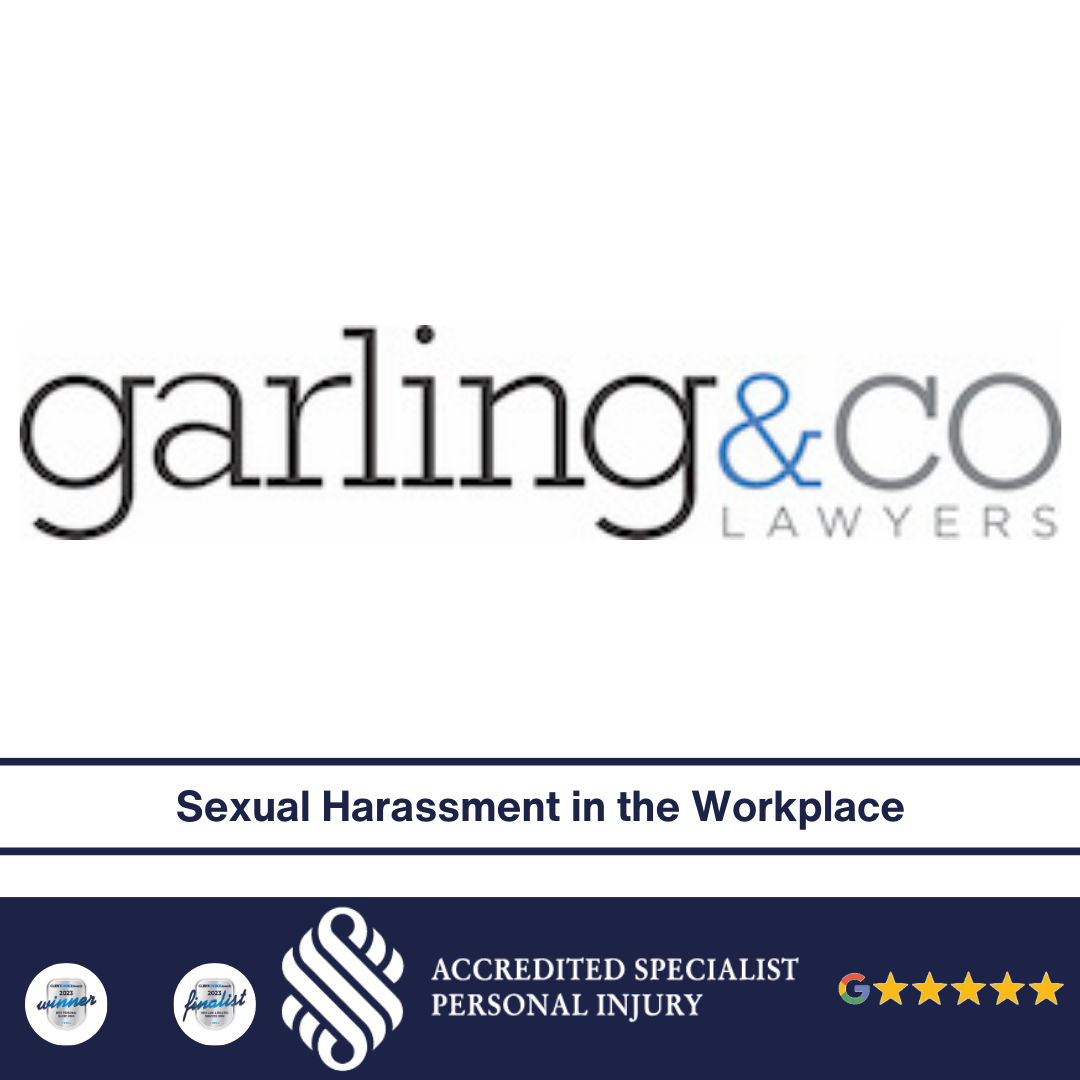
It is unlawful for an employer to sexually harass an employee or an employee to sexually harass a fellow employee.
Sexual Harassment in the Employment Context
Section 28B of the SDA makes it unlawful for an employer to sexually harass an employee or an employee to sexually harass a fellow employee.
Sexual harassment in employment by either fellow employees or the boss is considered to be unlawful discrimination.
Section 106 of the SDA imposes vicarious liability on employers for sexual harassment by one employee towards another. The employer is liable if they fail to take all reasonable steps to prevent the employee form doing the sexual harassment.
This means the employer could be held responsible for any remedy the employee may seek as a result of the sexual harassment by another employee.
Similar provisions are found in the Anti-Discrimination Act (NSW) 1977.
If you have sustained an injury either physical or psychological you can make a claim for workers compensation benefits under the NSW Workers Compensation Act 1987.
Complaint to the Australian Human Rights Commission
A complaint of sexual harassment in the workplace should be made to the Australian Human Rights Commission (AHRC) (within 12 months of the acts occurring). The AHRC has the power to investigate and conciliate any such complaint’s and make a determination as to whether the sexual harassment was unlawful discrimination in accordance with the Sex Discrimination Act.
Proceedings in the Federal Court
Once a complaint has been dealt with a party to the complaint may commence proceedings in the Federal Court (within 60 days of the decision by the AHRC). If the Federal Court is satisfied that unlawful discrimination has occurred, they can order an employer to pay compensation for any loss or damage suffered to the employee who has experienced sexually harassment.
Section 46PO of the AHRC Act allows the Federal Court to award damages for unlawful discrimination.
Compensation payable is for pain and suffering, distress and loss of income if any.
Such compensation historically has been of limited value however a recent decision by the Federal Court in Richardson v Oracle Corporation Australian Pty Ltd [2014] FCAFC 82 has significantly increased the damages awarded in workplace sexual harassment claims.
The ‘Oracle’ Case
Employees who have experiences of sexual assault and harassment in the workplace may be able to claim damages for embarrassment, loss of enjoyment of life, psychological injuries, and other forms of economic and non-economic loss.
In the breakthrough ‘Oracle’ case the applicant was sexually harassed by a co-worker for a period of 6 months. The human resources department investigated the allegation and found her claims to be true. Although, Oracle never took reasonable steps to stop the harassment after the initial investigation.
Eventually the applicant quit her job with Oracle. The applicant then made a formal complaint to the Australian Human Rights Commission for contravention of section 28B (2) of the Sexual Discrimination Act. Following which her case was referred to the Federal Court.
Initially the Federal Court was satisfied that there was unlawful discrimination towards the applicant and awarded $18,000 in general damages. In this judgement the employer was also found vicariously liable.
However, the applicant appealed the judgement and on appeal was awarded a total of $130,000 for general damages and economic loss.
The appeal case gave compensable weight to the ‘experience of hurt and humiliation of sexual harassment…and the value of loss of enjoyment of life occasioned by mental illness or distress caused by such conduct.’ For this the Court awarded the appellant $100,000.
The case also found that general damages could be awarded under tort, as was applied in the initial case, but statutory compensation could also be awarded under the Australian Human Rights Commission Act 1986 section 46PO(4)(d) which required the respondent to pay damages for any loss or damage suffered because of the conduct of the respondent.
The case also found that compensation could be awarded for economic loss. But for the sexual harassment by her co-worker the appellant would not have left her job at Oracle and sought a new job with a different company.
On appeal, the Court found a direct correlation between the sexual harassment and the applicant leaving Oracle. They compared her earnings at Oracle and her new job and found that over a 3 year period she had in fact lost money. The court awarded her $30,000 in compensation for economic loss.
This case recognised the long term negative effects that sexual harassment in the workplace can have on the victim, and that victims should be compensated adequately.
What do I do if I Believe I’ve been Sexually Harassed?
If you are being sexually assaulted or harassed in the workplace you must report it to your manager or human resources team. You should also keep any documents relating to the assault and or harassment.
You should record as much information as possible as it may help you down the track if your case is referred to court.
For instance, if the abuse is verbal it would be I your best interest to write a log of what is being said to you. If possible, record the body language of the person harassing you, if they are touching you, if they are insinuating anything with body language, if anyone is around, what you said, what you did, who you told, and what they did with the information.
It may be tedious and upsetting to record these things but it provides vital evidence that can be used to support your claim if your ever decide to take the matter further.
Being sexually assaulted or harassed at work is very emotionally taxing, for this reason it is important that you talk to people you can trust like your friends and family. However, if you are having trouble coping you should speak to your General Practitioner and make sure the complaint of sexual harassment is recorded in your Doctors notes.
If you do not feel like you can continue to work because of the assault or harassment it is important that you obtain a medical certificate from your GP. It is vital that the medical certificate details why you are having the time off work.
It is important to note that sexual assault and harassment is not normal and not tolerated under Australian law. If you require further information about your rights and entitlements, or bringing a claim you should consult an Accredited Lawyer.
What Should my Employer do?
If you have notified your manager or human resources team of the assault or harassment they should begin investigating your allegations.
Most workplaces should have policies and procedures in place to deal with this. However, if your workplace does not provide these to you it is important to ask them if they have a policy and if they can investigate your complaint.
If your employer fails to act reasonably on your allegations or fails to stop the harassment they may be found liable to pay compensation.
If you require any assistance, please contact us.












